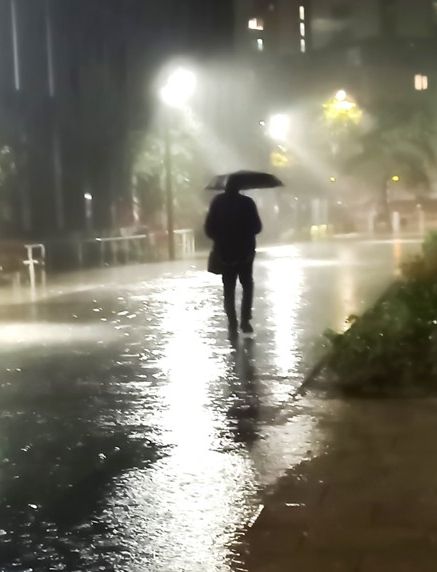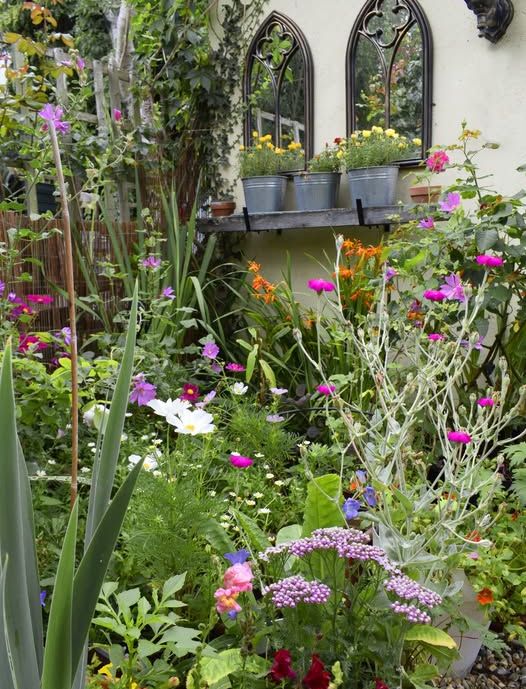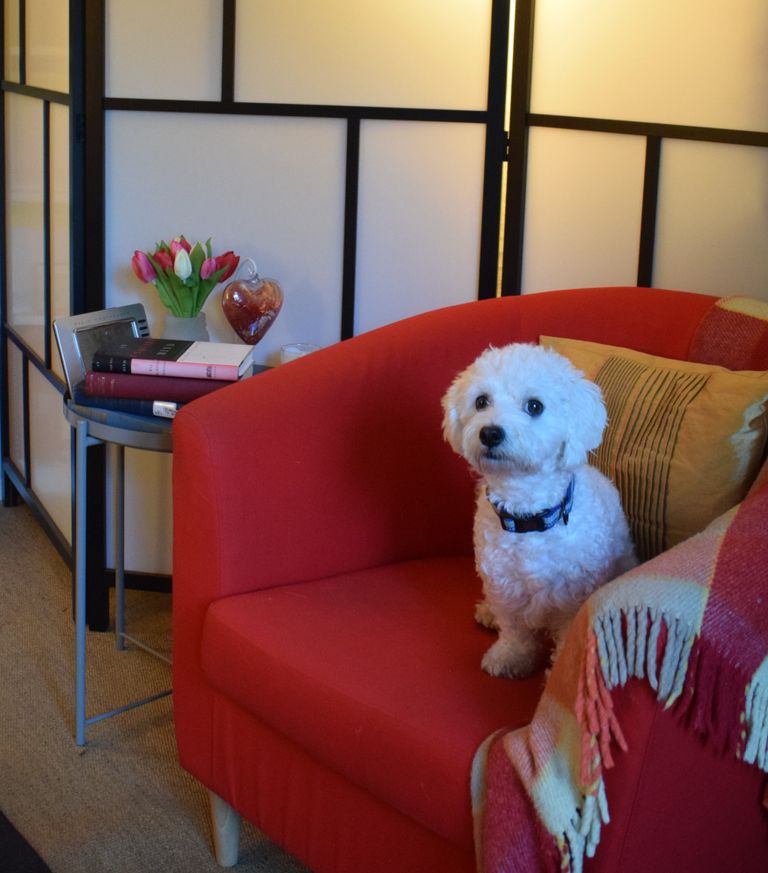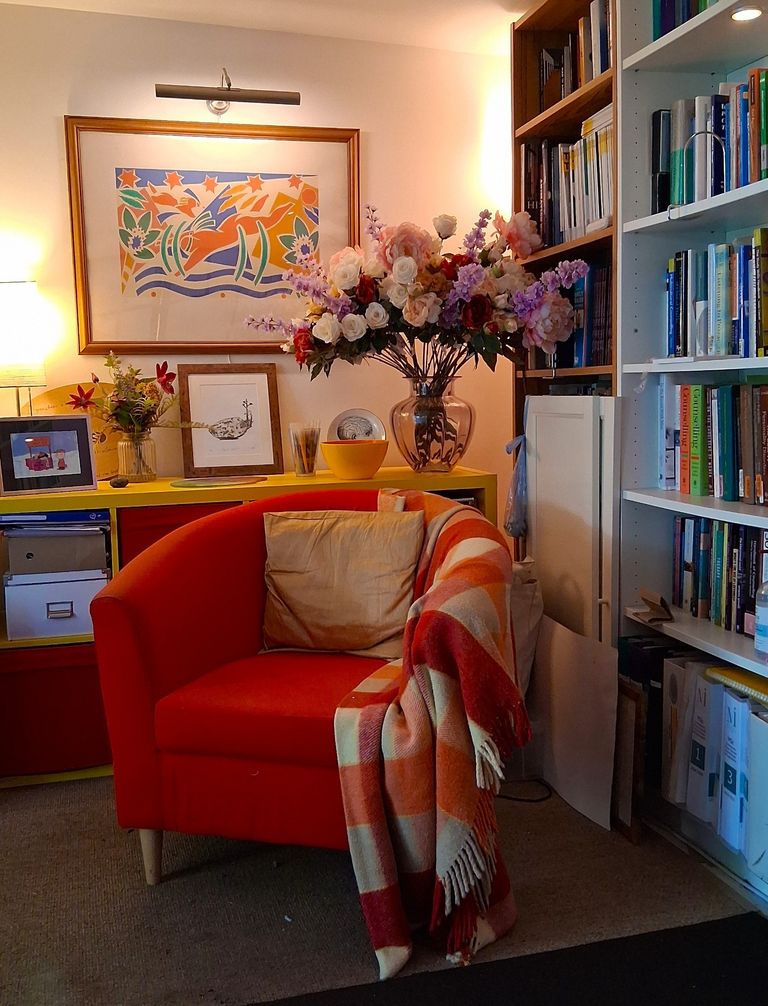
Reflections

September 2025
The Change of Seasons
Many people consider starting therapy as the summer ends and Autumn begins. Maybe there is something about the changing season, shifting light and shortening days as the year starts to die that heightens a sense of time running out and of our own mortality. From another angle, the start of the new academic year can invite people to start engaging in learning and self-discovery.
However, the calendar itself does not provide any insights into when best to start therapy. It is more important to pay attention to your own subjective and individual clues. I always have a curiosity when a new client appears and starts to tell me something about what has been troubling them, often for a period considerable of time. What is it that brings them into the room now, at this very moment, and not six, or twelve, months ago? I am guessing that something has shifted enough to prompt them into action, and it is always important for the therapist to be ready and prepared to help – recognising that these initial steps towards addressing any problems may well, at first, be tentative. This needs the therapist to demonstrate sensitivity in acknowledging and working with any initial doubts and manage situations that might arise when the client becomes uncertain or ambivalent.
Undertaking therapy requires a level of trust as both parties are venturing into uncharted territory – clients may, not unreasonably, arrive wanting answers – before that can happen the therapeutic process can help them determine, more accurately, what the actual questions might be. In effective therapy both the therapist and the client are learning, as they work together, what works. The process must always be open to adjustments and fine-tuning. For example, what the client is able to tolerate hearing, or consider cognitively, or emotionally, in one session may seem unbearable in another. It is to be expected that there will be difficult experiences and encounters in the therapy room, but in my experience, I haven’t encountered any that can’t be worked with ultimately be resolved.

August 2025
Nurturing Growth
My therapy room is situated within the garden that I have been nurturing for over 30 years. This patch of the garden had been left abandoned for some time, as I didn't think it got enough sunlight to grow any flowers. This year I decided I would plant a few things and see what happened and was surprised that with a little bit of additional attention and care it produced an abundance of flowers.
I often think there are parallels between gardening and therapy work. At the heart of each is a trust that given the right conditions, organisms move in a growthful direction.
Of course, it isn't quite as simple, or straightforward, as that statement suggests. There are times when the conditions are far from perfect and adjustments have to be made to reflect this. Sometimes clients can have an expectation that the difficulties they are experiencing will, through a course of therapy, quickly start to improve and will continue to improve in an incremental way. This can make set-backs disappointing and frustrating. During these challenging times, trust in the process can diminish, or even disappear.
However, it can often be the case that at these times moments of hope can unexpectedly emerge. In the same way that a struggling seedling, or small plant, looks too vulnerable to ever flourish - it is only some time later that we are able to appreciate the beauty that has ultimately emerged.

July 2025
Assisted Therapy
There is an interesting article in the latest edition of ‘New Psychotherapist’ magazine* about the newly emerging field of animal assisted therapy and the first master’s degree available in this area of therapeutic work.
There is a significant historical precedent. Sigmund Freud’s Chow Chow dog: Joti, was often by his side during therapy sessions. He claimed she was an excellent time-keeper and knew when the 50 minutes of the session had expired. He also believed that dogs could sense human emotions and gauge the levels of anxiety they were experiencing.
It is not a requirement that a dog has specialist training, in the same way an assistance dog might have, engaging freely and willingly, rather than performing. the benefit being derived from the dog demonstrating many of its natural characteristics, including their authentic communication and willingness to bond.
From a therapeutic perspective, dogs can help clients connect with grief and loss, and help them become aware of their attachment patterns in an experiential way.
Ultimately, the aim of animals to assist therapy should be to simultaneously benefit both the human and the animal. The little therapy dog in my practice is always keen to help if he can!
*From the article: ‘Animal Magic’ by Susanna Wright in the Summer 2025 edition of ‘New Psychotherapist’ published by the United Kingdom Council for Psychotherapy (UKCP).

June 2025
Being Present
I have recently made the decision to stop working online with therapy clients. This wasn't a quick or easy decision with many factors that needed to be considered.
The process started from a very personal perspective. When doing online sessions I started to experience increasing physical discomfort from sitting in front of a screen for long periods of time. Afterwards I began to experience headaches and aches across my shoulders and neck. Psychologically, it became more challenging to maintain the degree of focus needed to undertake therapeutic work. In addition, I was experiencing increasing stress relating to the various, and unpredictable, technical issues that frequently occurred and pulled the whole endeavour away from a therapeutic focus, and sometimes de-railed the process altogether. I concluded that working in this way seemed to be a very poor substitute for the rich experiential in-person client work I had been trained to do and found fulfilling.
These personal experiences led me to consider the value of working in this way from a wider perspective. Therapists were forced, overnight, into working online when the first Covid lockdown occurred in 2020.The alternative was not to work at all. Therapists had to adapt quickly, which proved to be a very steep learning-curve. Little consideration was given as to how this way of working might be reversed in order to return to the proc ess of working with clients in the therapy room. For many, it simply became the norm and the way they now preferred working.
it was never the preferred way of working for me. I craved to get back to the richness of the encounter of working with clients in-person. To experience them as a multi-faceted human being in the room – rather than a flat blurry entity on a screen. To utilise all the information that is available. The ability to pick up on all the nuances and subtleties in verbal and non-verbal communication. To be able to experience in the room, the mutual holding of difficult and challenging material, and the creating and sustaining of an ever-evolving relationship with the client, that is impossible when working online. that is only possible when you are present with them in the room.
This leads me to wonder if it is even possible to do therapy online. Counsellors might be able to provide something that the clients find helpful or beneficial in some way, But since it lacks so much, it will never be able to create the conditions that allows therapy to reach its full potential.